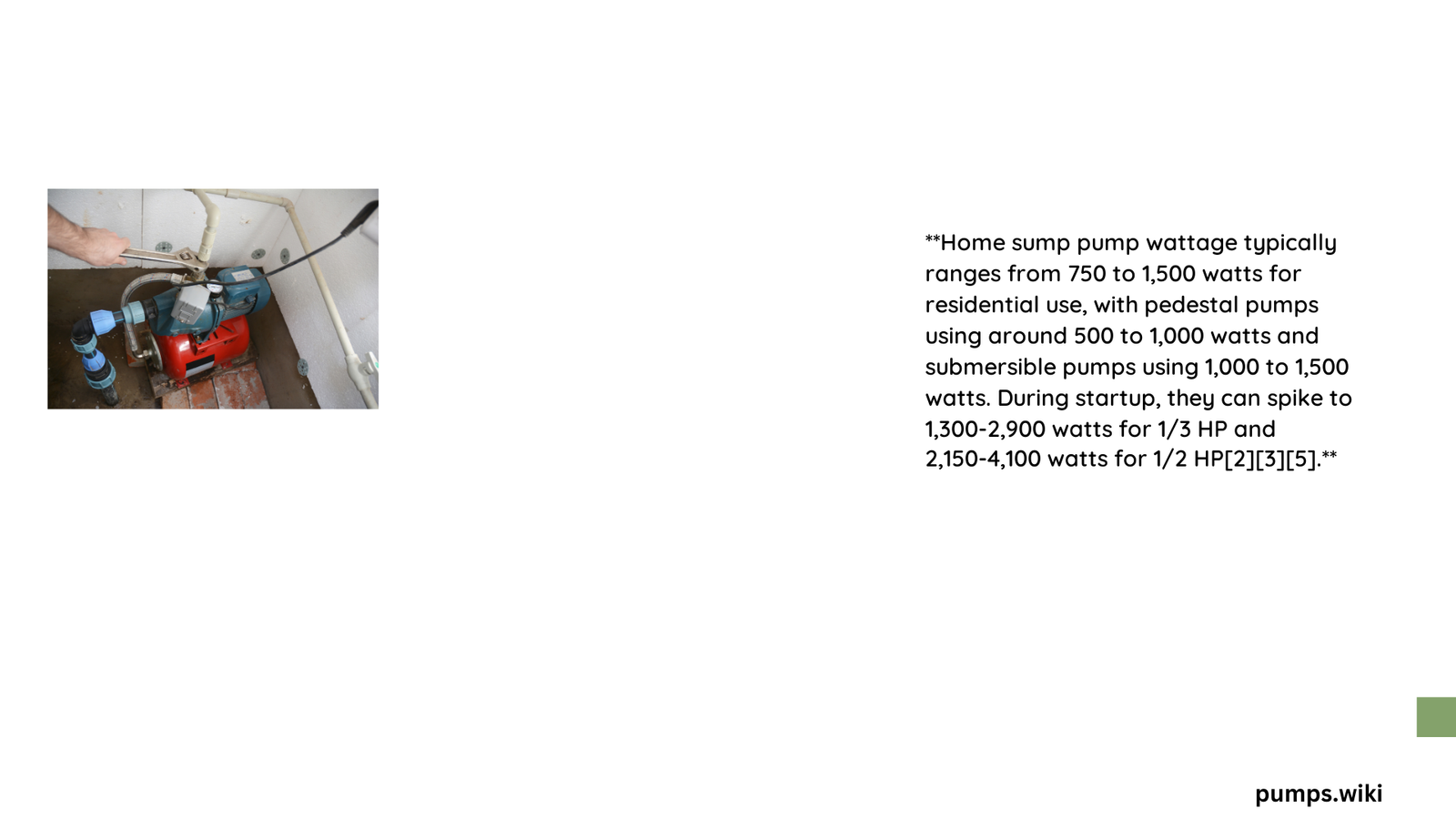Home sump pump wattage varies significantly based on motor size, design, and operational requirements. Understanding these electrical specifications is crucial for homeowners to manage water removal systems effectively, predict energy costs, and ensure proper basement flood prevention. Typical residential sump pumps consume between 600 to 1000 watts, with factors like horsepower, voltage, and amperage directly influencing power consumption.
What Determines Home Sump Pump Wattage?
How Do Different Horsepower Ratings Impact Electrical Consumption?
Sump pump wattage directly correlates with horsepower ratings. Here’s a comprehensive breakdown:
| Horsepower | Typical Voltage | Amperage | Calculated Watts |
|---|---|---|---|
| 1/4 HP | 115 VAC | 6.0 A | 690 Watts |
| 1/3 HP | 120 VAC | 5.2 A | 624 Watts |
| 1/2 HP | 120 VAC | 8.0 A | 960 Watts |
What Factors Influence Sump Pump Power Requirements?
Several critical factors determine home sump pump wattage:
- Motor Efficiency
- Hermetically sealed motors
- Thermal protection mechanisms
-
Impeller design
-
Operational Characteristics
- Pumping height (head pressure)
- Water volume
-
Frequency of activation
-
Electrical Specifications
- Voltage compatibility
- Amperage draw
- Start-up versus running watts
How to Calculate Annual Electricity Costs?
Calculating electricity costs involves multiple variables:
- Wattage Calculation: Volts × Amps = Watts
- Annual Operation Hours: Typically 100-200 hours
- Electricity Rate: Average $0.15 per kWh
Example Calculation:
[ 690 \text{ Watts} \times 100 \text{ hours} / 1000 = 69 \text{ kWh} ]
[ 69 \text{ kWh} \times \$0.15/\text{kWh} = \$10.35 \text{ per year} ]
What Are Energy Efficiency Best Practices?
Homeowners can optimize sump pump energy consumption through:
- Proper pump sizing
- Regular maintenance
- Installing energy-efficient models
- Using advanced float switch technologies
- Ensuring clean sump basin conditions
Why Professional Assessment Matters?
Professional evaluation helps determine:
– Precise wattage requirements
– Optimal pump selection
– Potential energy savings
– Long-term system reliability
Key Takeaways for Homeowners

- Understand your specific home sump pump wattage
- Consider energy efficiency alongside performance
- Perform regular maintenance
- Monitor electricity consumption
- Invest in quality, reliable equipment
Conclusion
Navigating home sump pump wattage requires careful consideration of multiple technical and practical factors. By understanding electrical specifications, operational characteristics, and efficiency strategies, homeowners can make informed decisions that balance performance, reliability, and energy costs.
